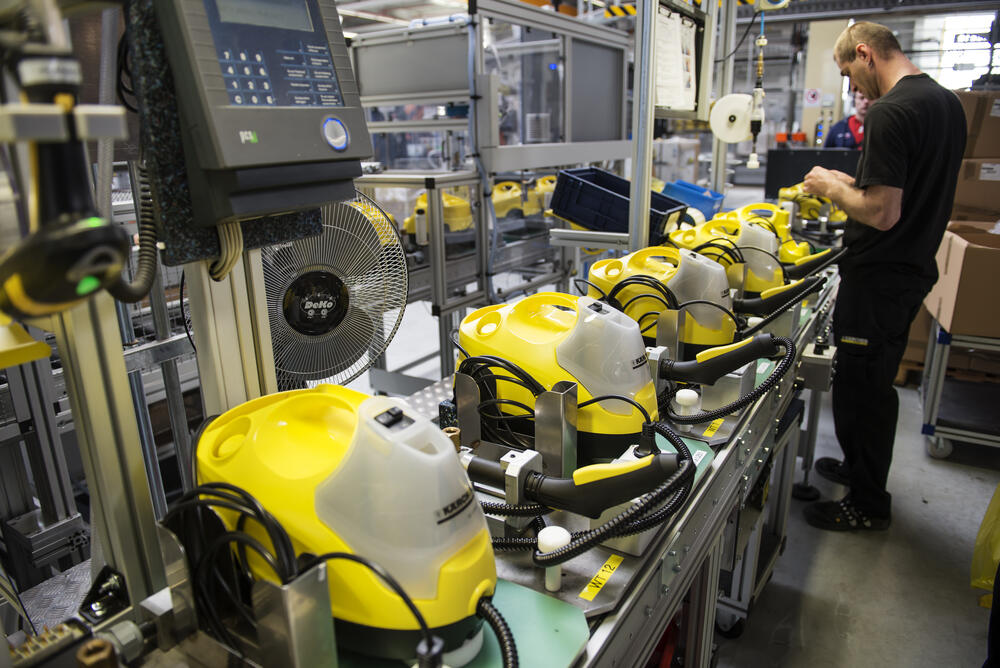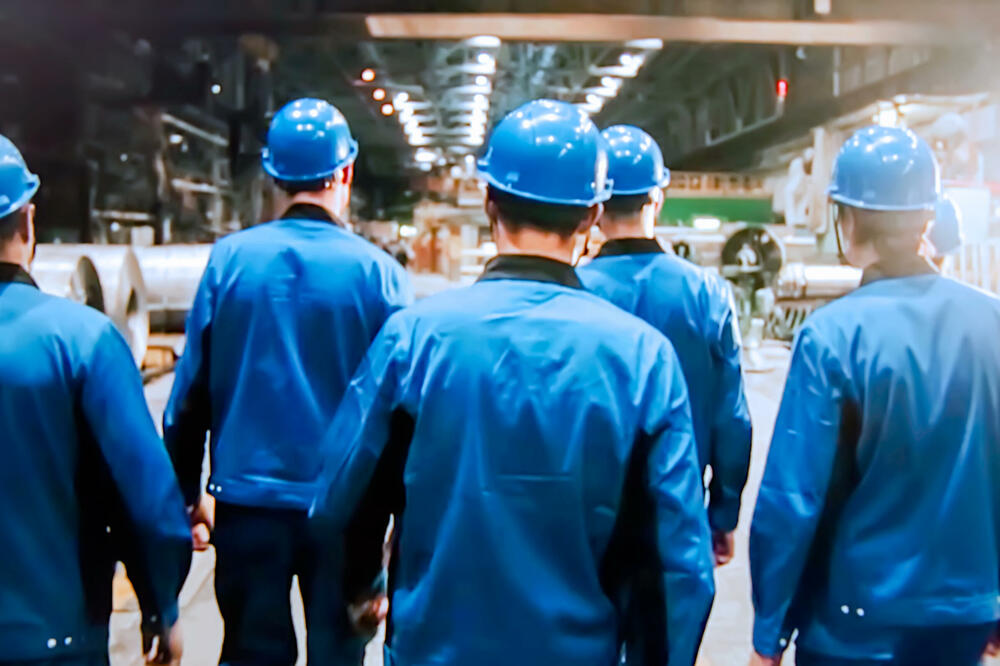A woman falls off her feet in Lidl in the south of Serbia. The second one in the German Leoni factory. When they complain, they say, they suffer retribution. But Germany has a law according to which these women can complain in Germany itself.
Milica* has been working at Lidl for two years. Jelena has been with Leoni, also a German company that makes cables, for two years. Both work in the south of Serbia, both are middle-aged, have families. And both are very dissatisfied with their jobs.
"The latest is that they reduced the number of days off in the week, so now we only have one day off," says Milica about working at a Lidl store in Serbia. He says that some colleagues did not go on vacation for two years because "the conditions were not met".
"There is a lot of pressure from the manager, we are chasing the norm to finish as much as possible in the shortest possible time. They give you a bunch of tasks to do and then in 15 minutes they are surprised that something that is impossible to do in 15 minutes has not been completed," she says.
"They ask you to stay after working hours, they ask 'please, can you', and the moment you don't have the strength anymore because it's like that every day, then you suffer the consequences," adds this woman.
Milica works for 60.000 dinars. If she got all the bonuses and worked every Saturday or Sunday, she wouldn't have more than 70.000 again.
He says that there are employees whose role is to "support the workers". But, when a complaint is made to them, they must convey the name and surname of the worker who is complaining and what he is complaining about. "That's when a new circle of hell and revenge begins, they say openly and hostilely that they know about your complaints, bonuses are lost and the like," she says.
There is no trade union in Lidl.
"Children have a tired mother"
Jelena is no different. She stands on the track and has to follow it, there is no slowing down. He can't sit down and rest, he can't make a mistake, because it could cost someone their life. Leoni sells its cables to BMW.
"In two years, I cut at least two million wires. It's just stamped. It's logical that sometimes concentration drops, sometimes you're not physically fit, you work sick - I sneeze, cough, I can't see anything, but I'm working," Jelena tells us.
"So far, I have only had a couple of errors found. But there are people who have much more, and then the contract changes, to a worse status", she says and says that she still hasn't been accepted into a permanent employment relationship.
"You have to be careful, it's a big responsibility, some wires are installed in the seats, in the air conditioner, some in the airbag, you can't make a mistake here, just imagine, people's lives depend on whether you have produced it well. And then you receive 500 euros for your work," says our interlocutor.
"With those 500 euros, I can live for seven days, and I got chaos at home. Since I work in three shifts, my children are deprived of all three meals, they have a mother who is constantly tired, dissatisfied, sleepless."
"I also got that they don't understand me, I can't progress in the company, I can't get a vacation when I want, you never know when you will get it, they tell you a few days before the vacation that your vacation is approved, you work beyond your means when the employer asks for you, and when there is no demand, he sends you home and takes away your bonuses because of those days when he has no work", our interlocutor was indignant.
There is no trade union in Leoni either. Workers are allowed to unionize, she says, but if they do, they are also told over and over that they will lose their jobs.

Can German law help?
These problems could be solved by the German Law on Due Diligence in the Supply Chain, which has been in force for a full year.
According to this law, both of our interlocutors can complain directly to companies in Germany. And more than that, Jelena can complain about the working conditions to the BMW company as a supplier that installs the cables that Leoni makes in Serbia.
This should be an alarm for BMW, because it does business with those who do not respect human and labor rights.
According to the new law, it is obliged to work on improving working conditions in the companies where it supplies its products, otherwise it can pay penalties.
"Companies registered in Germany that do business with Serbian companies must analyze social and economic risks in their supply chain, that they have adequate preventive measures and monitor how they are implemented," says Sanela Bahtijarević from the German Society for International Cooperation (GIZ), which , supplied with money from the German budget, is also working in Serbia to connect the two countries.
Bahtijarević is an advisor in the Initiative for Global Solidarity, a project that should clarify the Law on Supply Chains and connect companies, civil society and unions, to inform workers in Serbia about their rights.
According to unofficial estimates of the Regional Chamber of Commerce in Serbia, about one hundred companies are directly affected by the German law.
"Risks include child labor, forced labor, health safety at work, respect for working hours, overtime, payment of adequate wages, right up to unionization and discrimination," explains Sanela Bahtijarević.
"If a worker makes parts for Mercedes, he can now go to the Mercedes website and submit a complaint and be constantly informed about what is happening with his complaint. "Mercedes is obliged to respond adequately," says our interlocutor.

However, the employer also wonders
In addition to the direct complaint of the company to the buyer, there is also the Federal Agency for Export Control, which is in charge of monitoring the application of the law. On the website of that agency, the worker can also file a complaint and be informed about the action.
The Center for Democracy Foundation sees this law as an additional way to protect workers' rights, especially because Serbian laws are insufficiently enforced, labor disputes last up to five years, and they only apply to workers who are employed on the basis of an employment contract.
"Mostly it depends on how well the workers are informed about the opportunities and mechanisms that the German law gives them here, it also depends a lot on the trade union, which should be additionally engaged in notifying workers and reporting violations of labor rights, directly and by the German trade union," he says. Nataša Vučković, general secretary of the Center for Democracy Foundation.
However, the president of the United branch union "Nezavisnost" Čedanka Andrić thinks differently.
"Will this law come to life in Serbia? I'm not passing the ball, but it mostly depends on the employer, how much he will develop the mechanisms and how much he will consult the employees," she believes.
Because, as Andrić says, there are "very few" trade unions in Serbia. As there are none in Lidl or Leoni.
This means that Milica and Jelena, from the beginning of the story, who do not have a union in the companies they work for, have no choice but to complain directly to the Germans.
And to hope that because of that, in the end, they will not suffer the consequences.
*The real names of the workers are known to the editorial staff of Deutsche Welle. They asked for the names to be changed in the text because they are afraid of the consequences.
Bonus video:





